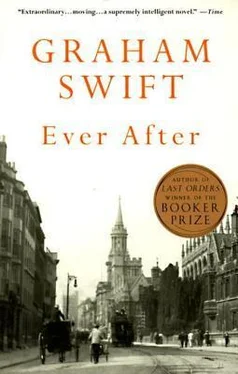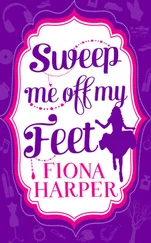So let me tell you (with special benefit of hindsight) about what might have been, what very nearly was, my last day on this earth.
The scene: a June afternoon; this college; my venerable Fellow’s chambers. Outside, rain is sluicing down — one of those vertical, seemingly immovable midsummer downpours which fall from a swollen sky and fill even covered spaces with a damp, sticky breath. The light is leaden. The lamps of study are lit. I sit reading (Darwin: the chapter on Instinct) by my venerable Fellow’s fireplace. Beside me, on the coffee table, my working copy of the Notebooks and scattered notes thereon. The gas fire is on, not because its warmth is needed, but to dry a pair of socks that dangle, pinned by a glass ashtray, from the mantelpiece, just to one side of John Pearce’s implacably ticking clock. I have just been out (my last mortal errand — cigarettes and coffee) and been caught, in leaky shoes, in the onset of the deluge. To counteract the heat of the fire, a window is half open, so that the room is full of the not unpleasing orchestration of the rain.
A quarter to four by John Pearce’s clock. When you are sitting at home by the fire … A knock on the door. I open it, in bare feet, a cigarette in one hand, a pencil behind one ear: the perfect picture of incommoded scholarship.
“I was just passing. Shelter from the storm?”
Now I think of it (this hindsight), that climb up my spiral staircase (ah yes, the stealthy chatelaine) cannot have failed to remind her of that earlier foray, years ago, to Potter’s office. Why else, on this wet and lethal afternoon, should she have described to me that very episode — given me the full, sorry saga of her and Potter? So the whole exercise (if that is the word) was a sort of re-rehearsal of that former, ostensibly scholarly assignation — with me in the role of the plausible tutor.
Ah — Katherine, isn’t it? Do come in. Now, what was it? Of course — Arthurianism in Tennyson. Well, you have come to the right place, my dear. Spiral staircases and genuine Gothic features. And the fireplace, you notice, a genuine piece of neo-Gothic pastiche, dating from Tennyson’s own time. Who shall we pretend to be? Lancelot and Guinevere? Perhaps not. Merlin and Vivien? Yes, I fancy myself as a beguiled wizard.…
Seduction by a female agent. The thing is obvious. No one “just passes” my corner of the College: there are gateways, courts, medieval intricacy. And, beneath her rain-spattered raincoat, there is a dress that no one casually wears at four o’clock on a wet afternoon: downy-soft, charcoal cashmere; well above the knee, figure-hugging; a row of winking buttons from nape to small of back. The legs are black and sheer (this is Gabriella’s sable costume upgraded). There is a single, thin silver chain round her neck. There are high-heeled shoes — damp and flecked with grit (should I suggest she kick them off?). The legs (I notice) are good legs, but without verve, as if she is not used to showing them. But this gives them a certain — appeal.
“You’re working — I can see. I’m disturbing you.”
“No, no. Please …”
I take her coat. She has left an umbrella weeping on the stone landing, but strands of her hair are wet; there is a drop or two on one cheek (it might have been arranged, this rain). She enters my room with an air of simultaneous premeditation and precipitateness, as if someone, perhaps, has gently pushed her, as if she is stepping on to the stage of some bizarre and potentially disastrous initiative test. And I am meant to guess, perhaps, that it’s all a performance, that it isn’t her idea; and therefore — out of sympathy — co-operate? But perhaps she is intent on not failing this — audition. Perhaps this wouldn’t be happening if Ruth hadn’t been an actress.
“Katherine— I wasn’t expecting— I— What can I get you? Tea? Coffee? Hot soup? A towel?”
She gives the room a long, prying, but distinctly hesitant glance. I have ushered her in, my initiative: she is the inveigled innocent — play it that way round. I think what she takes in first are the notes and the photocopy on the coffee table. Then that there are no obvious mementos, photographs (they are all in my bedroom). Then what she takes in are my socks.
“Ah — I’m sorry—”
But the socks seem to rescue her from incipient loss of nerve. The socks — limp, grey flags of discouragement though they must be to anyone bent on erotic manoeuvring — are in fact the unenvisaged trigger to the afternoon’s proceedings. It occurs to me now that if I had not removed my socks and hung them to dry on the mantelpiece, I might not be sitting here, in this quasi-afterlife, trying to recognise my former self.
“It’s all right,” she says, moving towards the fire. “I need to dry off myself.” She gives the skirt of her dress a little pluck and shake, though it doesn’t look wet to me. “Besides — I like a man with bare feet.”
She reaches out and fingers the socks — a strange combination of the sensual and the housewifely.
“They’re dry, you know.”
And it’s at this point, as she turns (catching me, perhaps, eyeing her from behind), that our eyes truly meet for the first time. And I can see in hers that she suddenly realises that the chemistry she is trying to induce might just, after all, be there . The gaze sharpens, brightens. Perhaps she won’t have to force it, feign it; perhaps she isn’t beyond it, past it. And certain things are on her side: this gushing veil of rain; the little orange hint of the gas fire; this innocuous man, all by himself, caught drying his socks.
Ah, yes, my dear — the Idylls of the King . Published, as you no doubt know, in the year that Darwin published his Origin of Species . At one and the same time these hapless Victorians had flung before them the spectre of their derivation from monkeys and Tennyson’s misty and moated chivalric nostalgia. But the latter, as you doubtless also know, was only a wistful cloak for a study of the perils of sexual freedom.…
She takes the socks from beneath the ashtray and toys with them, running a hand inside one and spreading her fingers.
“This is awful of me, isn’t it, butting in like this?”
She smiles. Then makes her move.
“Are those your notes on the Pearce manuscripts?”
“Yes.”
“And that’s a copy of the original?”
“Yes.”
“May I—?”
She picks up the photocopy, my socks still twined round her fingers. This is the first time I’ve allowed anyone — excluding Potter — to look at the Notebooks. I don’t know what portion of Matthew’s agony she briefly alights on.
“Michael is pretty upset that you won’t let him help you. You know that, don’t you?”
I say nothing.
“Pretty upset. You know what he’s like.”
There’s a sort of plea for corroboration in her eyes.
“I know what he’s like.”
“But you’re determined, aren’t you? You’ve made up your mind.”
She flicks through the photocopy as if riffling through a magazine. It seems somehow sacrilegious. I experience a passing urge to grasp it back — as if she means simply to appropriate it and make off with it. I have a sudden, bleak vision of what my life might be like without these — distracting — notebooks.
“I have,” I say.
She puts the photocopy back on the coffee table.
“And there’s nothing that would persuade you?” She seems to take a deep breath.
She holds up the socks fastidiously, one dangling from each thumb and forefinger, like incriminating articles.
“Nothing?”
I go to take them. I know it’s the wrong move.
“Nothing?” she repeats as I grasp them, and she doesn’t let go. Her face is transformed by a strange, unlovely effort. It’s as though, out of sudden, reckless confidence or out of sheer nervous impatience, she has decided to dispense with whatever further preliminary manoeuvres she may have planned and go full-tilt at the thing.
Читать дальше












